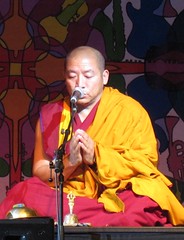The Different Levels of Identity
The Ego and Identity
Obviously, our sense of who we are will be different if we are dominated by the negative ego, opened to the healthy ego, or transformed by the surrendered ego. Each stage of the ego’s development will give us a different view of our identity. Those views become more accurate and truer to whom we really are as we move up through the three ego levels. The truest and most satisfying sense of self comes from the surrendered ego. It is the only stage of the ego that has truly merged with the soul and moved beyond the limitations of form and substance. The least satisfying sense of self comes from the negative ego. It stands completely separate and alone from the soul and has no connection higher than its own fear and arrogance. The negative ego determines its own identity by the role, or roles, it plays, as well as by how much power it can pull its way and place under its thumb.
The Negative Ego
The negative ego faces a difficult dilemma. If it does what it has been commissioned to do, which is to protect the individual from further pain, it will survive. However, if it survives, its host will never find real and lasting happiness, discover his true nature or actualize his higher purpose. He will remain separate, alone, and bound in fear. The controlling principle of the negative ego is that whatever remains alone and unconnected to a divine source will continue to remain empty and unfulfilled. At the heart of the negative ego is a state of deprivation that no longing or desire can ever fill. The negative ego may acquire many things, gain great power and notoriety, be the envy of many in the world, but it will never flower, as the example of Septimius clearly suggests. Nothing succeeds for the negative ego like its own death, yet the negative ego will fight its dying with all its considerable strength.
The Healthy Ego
When the healthy ego becomes stabilized in the Integration Zone, its compass becomes permanently fixed on true spiritual North, and it is guided by a deepening thirst for union with the soul. It begins to focus acutely on reaching the Elevation Zone. Of course, it knows that as a result of this pursuit, it will eventually die, but unlike the negative ego stage that has just passed, the healthy ego does not fear its demise. Rather it seeks it out instead. Since it has cleared its internal toxicity, it does not fear change, for it knows that the core self not only never dies, but also grows brighter and stronger as we evolve. It knows that its own death is the key to a wider life and to rapprochement with the soul. Its mission is to facilitate that union. It is not an obstruction as the negative ego is, but a dedicated servant of the evolutionary process.

